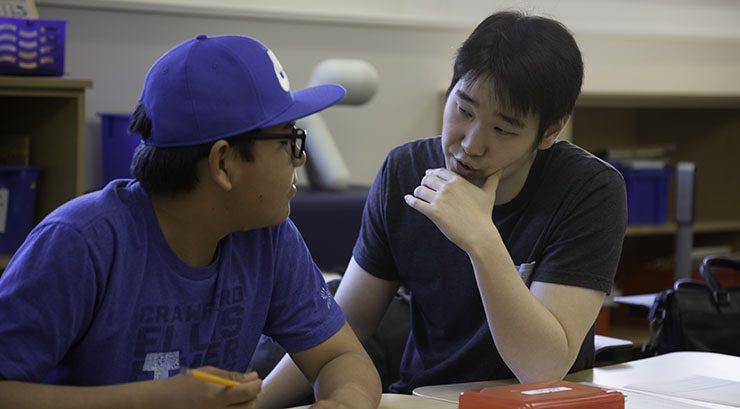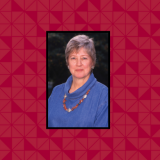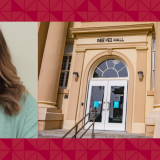
What Is the Difference Between a School Counselor and a School Psychologist?
January 14, 2022
If you are looking to pursue a career supporting youth in your community, there are a number of careers in school settings that don’t involve teaching. Both school counselors and school psychologists help students succeed in school and beyond.
While both of these professions support a student’s academic success, they are also focused on improving mental health and emotional well-being by providing students and their teachers and parents with tools and resources.
If you are considering a career as a school psychologist or a school counselor, it’s important to know the differences between these school-based roles. What are the day-to-day responsibilities of a school psychologist and a school counselor? How do their qualifications differ, and what salary can you expect to make?
School Counselor vs. School Psychologist
School counselors and school psychologists both provide student support services. School counselors generally serve the entire student population in one or more schools, whereas school psychologists provide more intensive interventions for students who qualify for special services and may serve several schools or an entire district.
Qualifying for employment as a school psychologist or school counselor requires both education and hands-on fieldwork. In the state of California, you must obtain a graduate degree and a Pupil Personnel Services (PPS) credential from an accredited university to qualify to serve in these roles. This requires completing academic coursework and a minimum number of fieldwork hours.
At Chapman University, school counseling and school psychology (CSP) programs vary in length, cost, and a number of fieldwork hours.
MA in School Counseling & PPS Credential
- 51-unit program that can be completed in 2 years of full-time study or 3 years of part-time study.
- 200 hours of practica and 800 hours of internship for a total of 1,000 hours of fieldwork.
Ed.S. in School Psychology & PPS Credential
- 69-unit dual degree program that can be completed in 3 years of full-time study or 4 years of part-time study. Chapman students earn a MA in Educational Psychology after two years and an Educational Specialist (Ed.S.) in School Psychology after three years of full-time study. Students also earn the California Pupil Personnel Services Credential in School Psychology at the same time as the Ed.S. degree.
- 600 hours of practicum and 1,200 hours of internship for a total of 1,800 hours of fieldwork.
Chapman CSP students also have the option to add an emphasis in Professional Clinical Counseling, which fulfills the educational requirements for the California license as a Licensed Professional Clinical Counselor (LPCC). LPCC license holders can practice counseling and psychotherapy outside of schools in private practice or clinic settings.
Role of the School Counselor
School counselors ensure children and youth with diverse needs receive proper care and education, working collaboratively with teachers, administrators, students, and families on a day-to-day basis.
In addition to providing college and career development, they counsel students regarding social or emotional challenges, help them to apply academic achievement strategies, and consult with families and teachers. Their goal is to provide wrap-around academic, personal, and developmental support to school-age children.
“School counselors are a valuable community resource and an essential part of K-12 education,” said Randee Kirkemo, Ed.D., assistant professor and program coordinator of the Chapman’s School Counseling program. “School counselors deliver a comprehensive and data-driven program that supports the social-emotional, academic, and college/career needs of all students in an educational community.”
Role of the School Psychologist
School psychologists are specialized mental health professionals who have training in both psychology and education. With a whole-child approach to education, they focus on assessment, crisis management, and identification of students’ emotional and learning needs.
On a day-to-day basis, school psychologists work with students who qualify for special services due to educational, behavioral, or developmental challenges that impact their ability to learn. To serve these students, school psychologists help develop individualized education plans, or IEPs, to support the students’ personal and academic achievement.
As part of this work, they assess for intervention, administer psychological tests, offer mental health counseling and behavior management, and collaborate with parents and teachers regarding behavior modification techniques.
“School psychologists tend to be data-driven professionals who are drawn to the more clinical aspects of the role,” said Kelly Kennedy, Ph.D., associate professor and director of Chapman’s School Counseling and School Psychology programs. “Many are also drawn to the assessment portion of the role and enjoy identifying barriers to academic, behavioral, and social-emotional development so that they can help to generate solutions.”
Salary and Job Market Comparison
Experts expect the demand for both school counselors and school psychologists will grow through 2030 due to an increased awareness of the connection between mental health and learning. The COVID-19 pandemic has also increased the demand for counseling and psychological services in schools and other community settings.
The US Bureau of Labor is projecting an 11% growth in school counseling jobs and a 10% growth in school psychologists jobs from 2020 to 2030.
The median annual wages for school counselors in California is $75,000, whereas the median annual wages for school psychologists in California is $104,000.
Advocates for All Students
“School counselors and school psychologist are advocates for social change, diversity, equity, and inclusion,” said Dr. Kennedy, “and key providers of community-based mental health support services.”
Regardless of whether you choose to pursue school counseling or school psychology, you’ll enjoy a meaningful, impactful career as an advocate for all students.
Learn more about Chapman University’s School Counseling and School Psychology (CSP) graduate programs.

